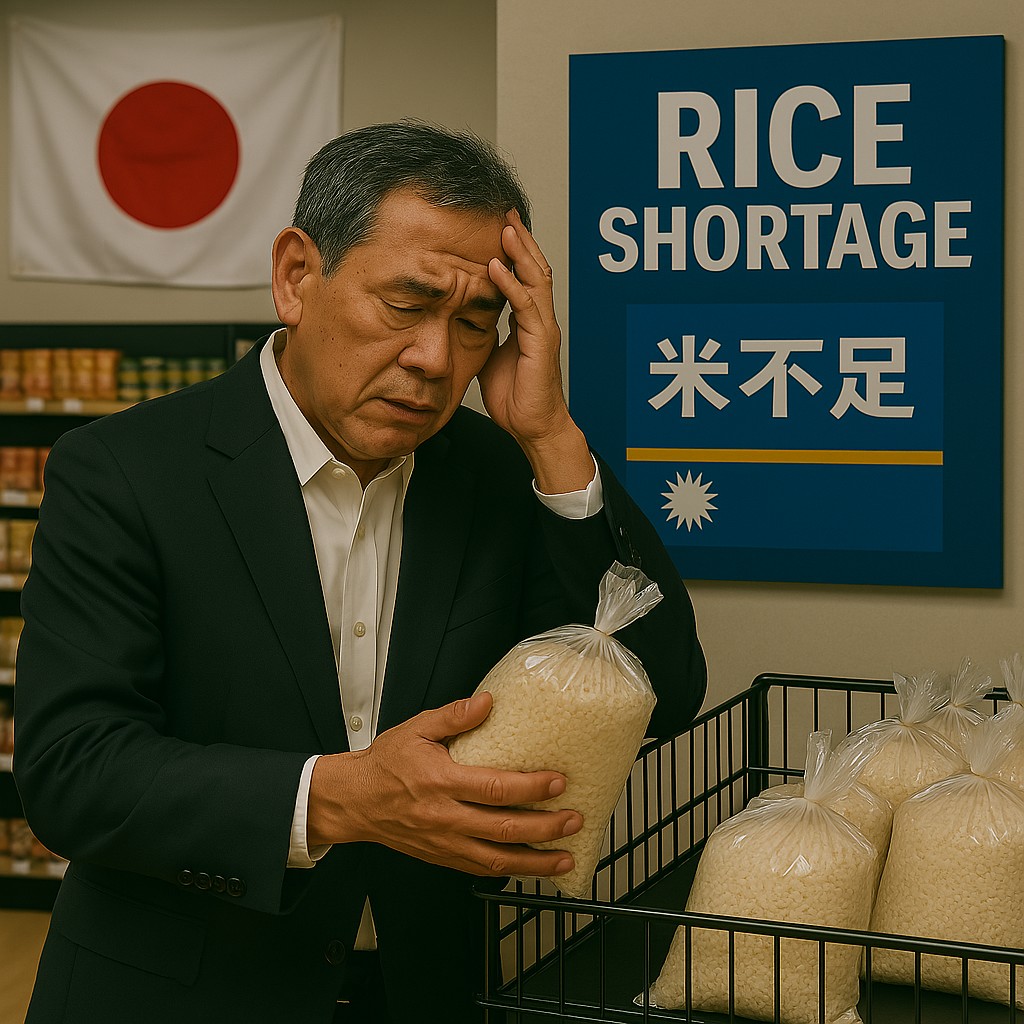
Japan’s rice crisis has escalated into a national security concern, as soaring prices and dwindling supply expose deep flaws in the country’s agricultural policy and food security framework. Once a symbol of self-sufficiency, rice is now at the center of a political firestorm ahead of the July 20 House of Councillors election.
The crisis stems from a perfect storm of climate volatility, aging farmers, and rigid protectionist policies:
- A poor harvest in 2023, followed by heatwaves and typhoons in 2024, slashed high-quality rice output
- Rice prices surged by 90% over 2024 levels
- The government’s refusal to release emergency stockpiles triggered panic buying and urban shortages
Despite Japan’s near 100% rice self-sufficiency, the system is fragile. The government’s rice reserves—meant for crop failures—were withheld to protect producer prices, a move critics say prioritized political optics over consumer welfare. The ruling Liberal Democratic Party, heavily backed by rural cooperatives, faces backlash for ignoring urban voters’ needs.
Agriculture Minister Shinjiro Koizumi, appointed in May, pledged reforms and began discretionary releases of rice stockpiles, but the damage was done. Inflation hit 3.6% in March, and rice symbolised broader economic anxiety.
The crisis also revealed structural weaknesses:
- The average farm size in Japan is just 2 hectares, compared to 160 in California
- 84% of farmers operate on less than 3 hectares, limiting scalability and competitiveness
- Depopulation and urban migration have hollowed out rural labor, with the average farmer now aged 69
Experts argue that Japan’s rice policy—designed to protect producers—has become a liability. Calls are growing for a dual-track approach: social support for small-scale farmers and market liberalization for large producers.
The U.S. has offered Calrose rice exports via Aeon supermarkets, but cultural resistance to foreign rice remains strong. Japan’s 778% rice tariff is still in place, making imports a last resort.
As rice prices dominate headlines, the crisis reshapes Japan’s political landscape. Voters are demanding accountability, and policymakers are being forced to confront a hard truth: food security is national security, and Japan’s current system is no longer fit for purpose.


